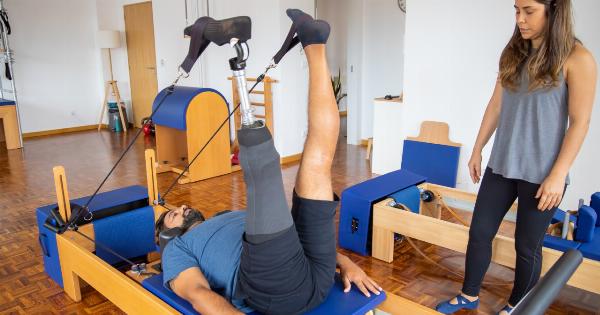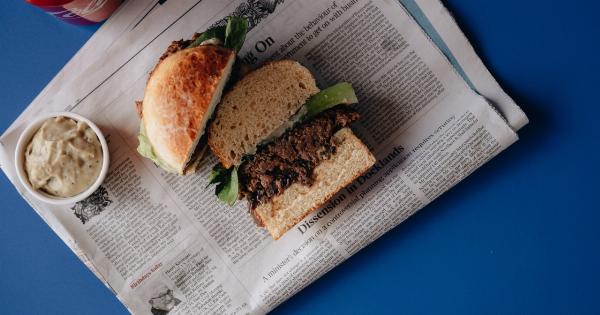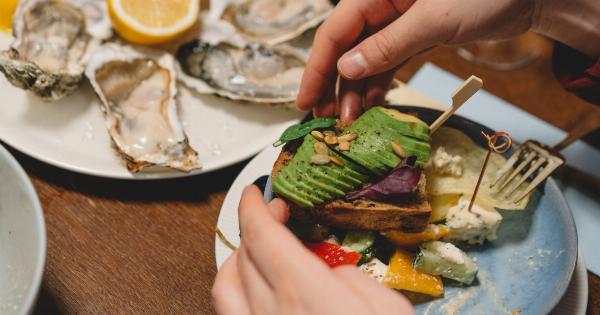Gymnastics is a physically demanding sport that requires strength, flexibility, and endurance. To excel in gymnastics, athletes need to have a well-balanced diet that provides them with the energy and nutrients they need to perform at their best.
Pre-gymnastics diets play a crucial role in fueling the body and optimizing performance. In this article, we will explore various dietary strategies used by gymnasts and discuss what works best.
1. Balanced Macronutrients
Gymnasts need to consume a well-balanced diet consisting of carbohydrates, proteins, and fats. Carbohydrates are the primary source of energy and should make up the majority of an athlete’s pre-gymnastics meal.
Healthy sources of carbohydrates include whole grains, fruits, and vegetables.
Proteins are essential for muscle repair and growth. Good sources of protein for gymnasts include lean meats, poultry, fish, beans, legumes, and dairy products.
Fats are also an important component of a gymnast’s diet as they provide essential fatty acids and help in the absorption of fat-soluble vitamins. Opt for healthy fats such as avocados, nuts, seeds, and olive oil.
2. Timing of Meals
The timing of meals is crucial for gymnasts to ensure they have enough energy during their training sessions. It is recommended to have a pre-workout meal 1-3 hours before training.
This meal should be rich in carbohydrates and moderate in protein and fats.
Choosing easily digestible foods such as fruits, yogurt, or smoothies can help avoid any stomach discomfort during practice. It’s essential to listen to your body and adjust the timing of your meals based on your individual needs and preferences.
3. Hydration
Staying properly hydrated is key for gymnasts to perform at their best. Dehydration can lead to a decrease in energy levels and cognitive function.
It is important to drink water throughout the day and especially before, during, and after training sessions.
Avoid sugary drinks and opt for water or electrolyte-rich sports drinks to replace lost fluids and minerals during intense workouts.
4. Pre-Competition Meal Planning
Gymnasts often have competitions that require careful meal planning to optimize performance. The pre-competition meal should be eaten 3-4 hours before the event to allow for proper digestion.
This meal should be high in carbohydrates, moderate in protein, and low in fat. Examples of pre-competition meals include whole-grain pasta with lean meat and vegetables, brown rice with grilled chicken, or a turkey sandwich with whole-grain bread.
5. Individualized Approach
Every gymnast is unique, and what works best for one athlete may not work for another. It’s essential to experiment and find the dietary approach that works best for you.
Consulting with a registered dietitian who specializes in sports nutrition can be highly beneficial in creating an individualized pre-gymnastics diet plan.
6. The Role of Supplements
While a well-balanced diet should provide all the necessary nutrients for gymnasts, some may opt to use supplements. However, it’s important to note that supplements should never replace real food.
If considering supplements, it is essential to consult with a healthcare professional or a registered dietitian who can guide you on the appropriate usage and dosage.
Some commonly used supplements among gymnasts include protein powders, multivitamins, and omega-3 fatty acids.
7. Pre-Workout Snacks
Having a small snack before a workout can provide an energy boost and prevent hunger during training sessions. Opt for easily digestible snacks that are rich in carbohydrates and contain a moderate amount of protein.
Examples of pre-workout snacks for gymnasts include a banana with almond butter, Greek yogurt with berries, or a homemade energy bar made with oats, nuts, and dried fruits.
8. Whole Foods vs. Processed Foods
It is always recommended to prioritize whole, nutrient-dense foods over processed and packaged foods. Whole foods provide a wide range of essential nutrients and are less likely to contain added sugars, unhealthy fats, and artificial additives.
Avoid or limit the consumption of processed snacks, sugary drinks, and fast food, as they can negatively impact performance and overall health.
9. Preparing for Long Training Sessions
During intensive training sessions or long competitions, gymnasts may require extra fuel to sustain their energy levels. It is crucial to have a combination of carbohydrates and protein before and during these extended periods of physical exertion.
Some examples of suitable pre-gymnastics meals for long training sessions include oatmeal with fruits and nuts, a turkey and avocado wrap, or a smoothie made with protein powder, fruits, and a spoonful of nut butter.
10. Post-Workout Nutrition
Proper post-workout nutrition is essential to aid in muscle recovery and replenish glycogen stores. Within 30 minutes of completing a workout, gymnasts should consume a snack or meal containing both carbohydrates and proteins.
Some post-workout snack ideas for gymnasts include chocolate milk, a protein shake, or a Greek yogurt parfait with berries and granola.
Conclusion
Optimizing pre-gymnastics diets is essential for gymnasts to perform at their best and meet the physical demands of the sport.
A well-balanced diet that includes macronutrients, proper meal timing, hydration, and individualized approaches can significantly contribute to overall performance and recovery. Remember to consult with professionals to create a customized plan that meets your specific needs and goals.






























